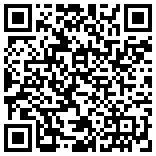The forex market is all about trading between countries, the currencies of those countries and the timing of investing in certain currencies. The FX market is trading between counties, usually completed with a broker or a financial company. Many people are involved in forex trading, which is similar to stock market trading, but FX trading is completed on a much larger overall scale. Much of the trading does take place between banks, ngaahi puleʻangá, brokers and a small amount of trades will take place in retail settings where the average person involved in trading is known as a spectator. Financial market and financial conditions are making the forex market trading go up and down daily. Millions are traded on a daily basis between many of the largest countries and this is going to include some amount of trading in smaller countries as well.
From the studies over the years, most trades in the forex market are done between banks and this is called interbank. Banks make up about 50 percent of the trading in the forex market. Ko ia, if banks are widely using this method to make money for stockholders and for their own bettering of business, you know the money must be there for the smaller investor, the fund mangers to use to increase the amount of interest paid to accounts. Banks trade money daily to increase the amount of money they hold. Overnight a bank will invest millions in forex markets, and then the next day make that money available to the public in their savings, checking accounts and etc.
Commercial companies are also trading more often in the forex markets. The commercial companies such as Deutsche bank, UBS, Citigroup, and others such as HSBC, pea mo ha niʻihi kehe hange ko Goldman Sachs, ABN Amro, Morgan Sitenili, pea ko e ngaahi meʻa peheé ʻoku nau fefakatauʻaki mālohi ʻi he ngaahi maketi ʻoku toe vakaiʻí ke fakalahi ʻa e koloa ʻa kinautolu ʻoku nau maʻu ʻa e ngaahi sitoka ʻinasi. Mahalo he ʻikai ke kau ha ngaahi kulupu iiki ange ʻi he ngaahi maketi ʻoku lahi tatau pe mo e ngaahi kulupu lalahi ʻe niʻihi ka ʻoku stil ai ʻa e ngaahi fili.
Central banks are the banks that hold international roles in the foreign markets. The supply of money, the availability of money, and the interest rates are controlled by central banks. Central banks play a large role in the forex trading, and are located in Tokyo, New York and in London. These are not the only central locations for forex trading but these are among the very largest involved in this market strategy. Sometimes banks, commercial investors and the central banks will have large losses, and this in turn is passed on to investors. Other times, the investors and banks will have huge gains.































































































 Fakamatala ki he Fafanga ʻo e RSS
Fakamatala ki he Fafanga ʻo e RSS